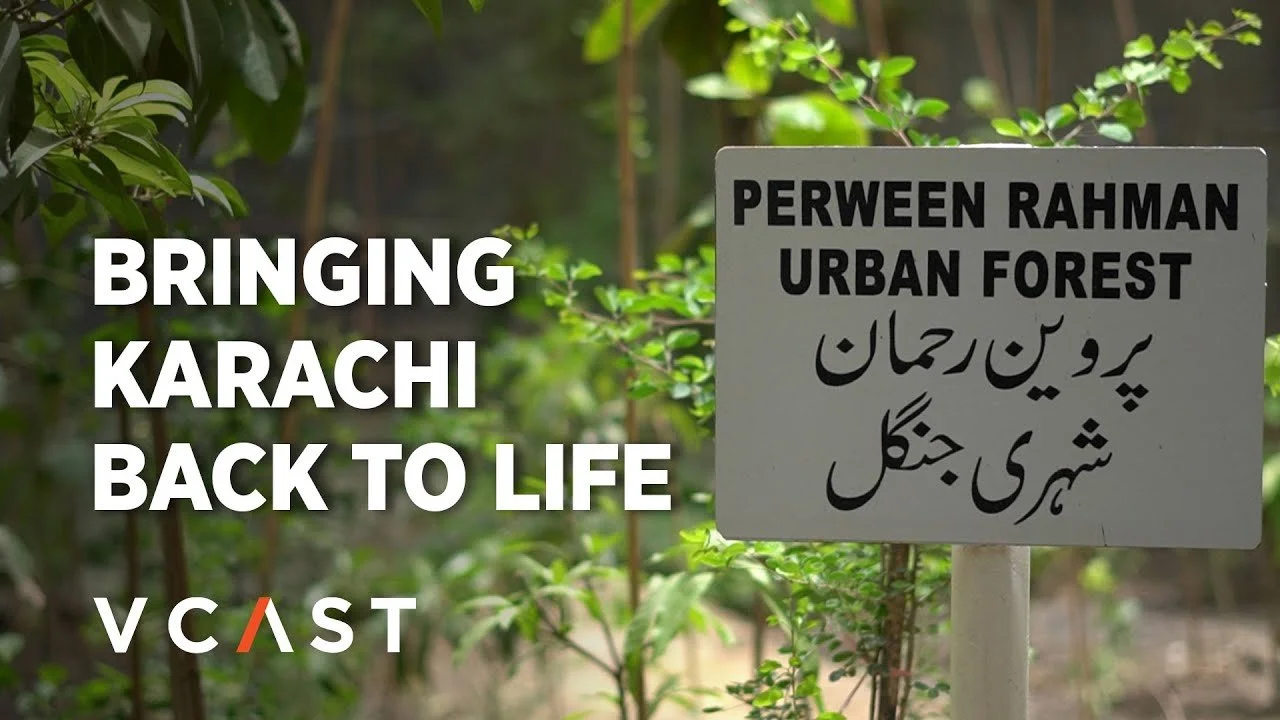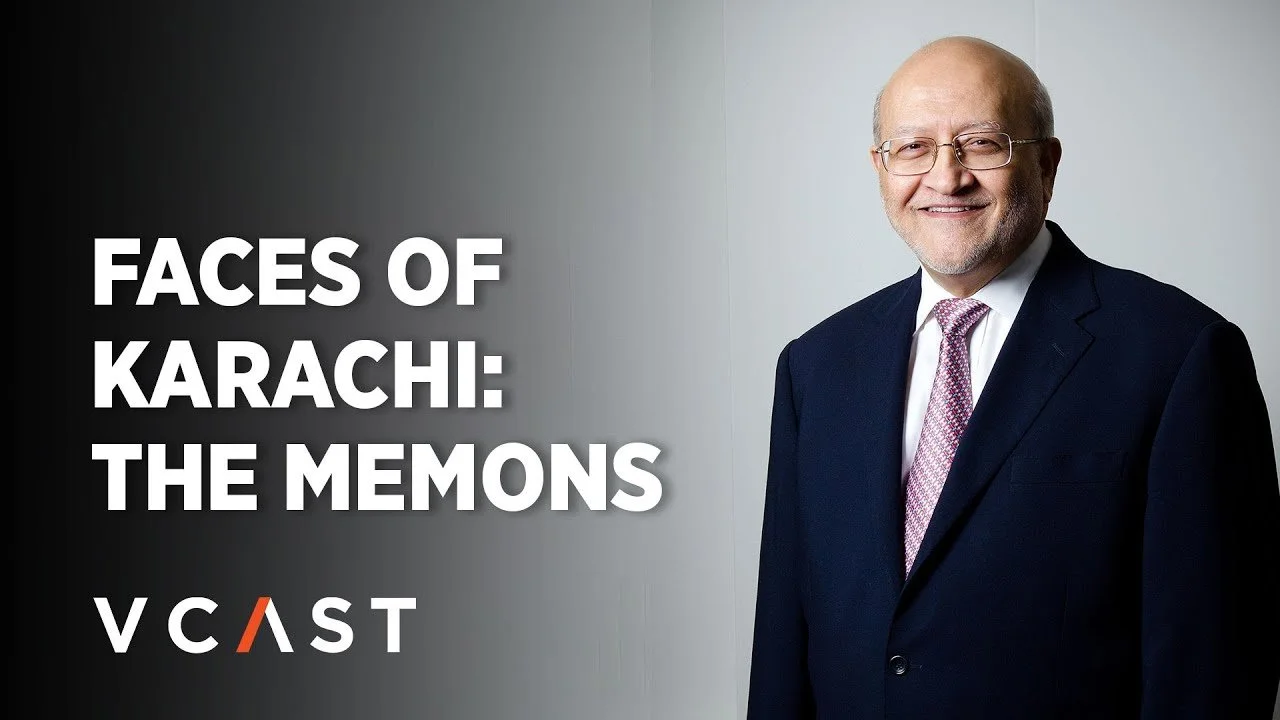Tabarak Rehman In Conversation with TCF's Co-Founders
In December 2024, Tabarak Rahman completed a 1,600-kilometer run across Pakistan to raise funds for The Citizens Foundation (TCF). The day after completing his run in Karachi, he met the organization’s three co-founders for the first time.
TCF began in 1995 as a conversation among a few like-minded people and has since grown into one of Pakistan’s largest education movements, now operating more than 2,033 schools that serve over 300,000 children in underserved communities.
The initiative emerged from the Wednesday Club, an informal group that met weekly to discuss national challenges. Several significant social programs were launched by the club, including the Citizens Police Liaison Committee and the Indus Valley School of Art & Architecture, which was co-founded by club members Arshad and Shahid Abdulla.
The six founders of TCF initially aimed to build a healthcare-focused initiative but soon recognized that education was a root cause of many health-related problems.
The founders had no prior experience in education, but they were successful businessmen, so they applied proven business principles—systematic management, professional accountability, and transparency—hiring competent managers to maintain efficiency and impact.
Their initial goal was audacious: to build 1,000 schools in Pakistan. Many doubted it was possible, but they moved forward, convinced that an expansive network was essential for meaningful impact. They achieved that goal in 14 years.
The first five primary schools, fully funded by the founders, served as a proof of concept. Located across Karachi, they drew visitors who witnessed the deprivation firsthand. A pivotal moment came when a donor, moved by the need for secondary education, wrote a $1 million check on the spot. This funding launched a secondary school program that grew to 32 schools.
TCF schools are intentionally located where neither government nor private institutions operate, filling a critical gap in Pakistan’s education system. The philosophy is to “bring the school to the students” rather than bringing students from distant areas to the school.
Co-founder Ateed Riaz underscores TCF’s ethos of education without discrimination:
“Admission forms don’t discriminate or ask for religion, sect, or ethnicity. Any child in the school’s area who needs education, we teach them reading and writing so they can make better future decisions.”
The belief is simple: nurture children in the right environment and in schools that have no vested interest, and they will be inspired to act selflessly, laying the groundwork for a stronger, more compassionate society. TCF aims to provide not just quality education but also to produce citizens who are of service to their community.
This impact is visible in the lives of TCF alumni. Many graduates remain deeply tied to their villages and neighborhoods, whether they choose to stay in their hometowns or not.
Nadeem Hussain is one prominent success story, and Tabarak also mentions a student he met who, after graduating from TCF, secured admission to a medical college. Inspired by teachers who taught him to think beyond himself, he organized a WhatsApp group that helped 2,000 children prepare for further education—passing on the very knowledge that lifted him. It is through such examples that TCF creates role models in underserved areas where hope was once absent.
Beyond professional ambition, TCF emphasizes dignity and pride in one’s origins. At a global conference, a 12-year-old student was asked about his father’s work. “He drives a donkey cart,” the boy replied with pride.
“Becoming a doctor is a success story, but being proud of your beginnings is also a success story.”
From its earliest days, TCF was structured with professional discipline. Governance remained central, with a strong emphasis on transparency and accountability. The management and the board were kept separate, and donors were treated as impact investors, with KPIs and deliverables guiding every decision. Fundraising was approached with the same seriousness — never as entertainment, but as a responsibility to ensure resources were used with integrity.
Humility has also remained central to TCF’s philosophy. The founders seek no personal glory, acting only in service to their faith and community.
“We have never held an opening ceremony for our schools. We start each school with just a small prayer.”
TCF maintains uniform standards from Gwadar to Mardan, ensuring children from all areas receive the same quality of education. While sustaining quality in remote regions is a challenge, teacher training and long-term immersion help address it. This commitment to consistent quality significantly boosts children’s confidence as well.
In the 1990s, only a quarter of Pakistani children had ever seen the inside of a school. Today, that number has risen to 75 percent. The challenge has shifted: in the past, both supply and demand were weak; now families demand education, but there still aren’t enough schools. TCF continues to expand at the pace of 100 new schools a year, the equivalent of two every week. Their expansion rate is determined by their own bandwidth and the necessity to build secondary schools for children who have completed primary education at TCF.
The TCF model is also scalable to the public sector. With its trained teachers, quality textbooks, and standardized systems, it could be applied across 126,000 to 140,000 government schools without new construction.
TCF is also Pakistan’s largest employer of women outside the government, with more than 17,000 female staff and a deliberate 50-50 gender ratio that builds parental trust and community confidence. Many female graduates also go on to secure local jobs, advancing both economic independence and social mobility.
Some TCF schools also have ayaas, who help care for students and teach them about hygiene. As community members, ayaas also support outreach efforts to bring new students.
After nearly three decades, the founders say they would change nothing about their focus on education. Their hope is to inspire a nationwide movement where every Pakistani child has the chance to learn, grow, and realize their potential.
Donate to TCF today to support their vision of positive social change through education.
This article was developed with the assistance of AI tools.




